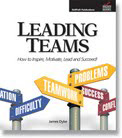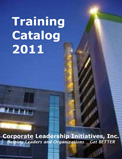If you hire the right person, you solve a lot of problems BEFORE they happen.
This advice is a follow-up to my last post, and comes from a very savvy boss I had early on. And I continued to see practical illustrations of the principle throughout my career in leadership!

Up Close and Personal
The best example I can give (which by definition may actually be the worst case) was in the hiring of a leader to replace the founding CEO who was ready to retire. The Board appointed a search committee, which was completely untrained and ill-equipped. The committee gushingly embraced a candidate with only a cursory investigation into his résumé. As it happened, two of us on the executive staff had connections with industry leaders in our personal networks who provided troubling information about his performance in previous positions. Our information was discounted by the Board (since we were going to be reporting to the new CEO, we were seen as “interfering” and getting too personally involved in the hiring process). The candidate was approved. Six months later, after a myriad of his executive missteps, the Board decided they had hired the wrong person. They dismissed him; gave him 11 months severance pay; and forgave a $100,000 real estate loan which (at hiring) had been provided to help him purchase a home in the nearby community. The Board then decided that the leadership succession problem was too much of a headache, and voted to merge with another organization that already had an executive in place. Three of us on our own executive team were subsequently summarily fired by the Chairman of the Board on the same day. (EDITOR’S NOTE: This experience energized me to start my own company, which I eventually accomplished!)
A LOT of leaders don’t know how to hire well
Early in my career, I was one of those leaders. I realized I had a lot to learn in this area. In fact, one of the reasons I took a particular job was to work for a CEO so I could develop skill in three areas where he demonstrated tremendous executive expertise: budgeting and finance; working with a governing board; and hiring and staffing. It turned out to be one of my better decisions. Since then, I have shared much of what I learned from this leader in my seminars and coaching sessions! Sadly, in my many years of experience I saw MANY executives who did not have the hiring savvy of this particular leader. One of my conclusions was pretty straightforward:
If you don’t know how to hire well, you will always be shooting yourself in the foot.

That’s the converse of the original principle I shared at the outset of this post. And it’s just as true! So now I am going to help you with your next hiring challenge. I am going to give you some insight and tips that will equip you for a much better hire next time around. But here’s the caveat: THIS IS NOT COMPREHENSIVE INFORMATION. But it will be a good start for you, and give you plenty of things to consider in your next candidate. I’ll start with this principle:
90% of good hiring is about FIT.

Finding the right person for your team is mostly about FIT. So I encourage you to examine FIT in the following 5 dimensions…
#1: Does the candidate fit your industry?
In other words, do you think this person understands the importance of what you do; values what you do; and can help you succeed at what you do? For example, I have worked with a number of people in the Health Services Industry. The ones I have met who perform with greatest impact and excellence are the people who have a strong “caring instinct” coupled with an emotional motivation to serve others. They do well because they enjoy what they do, and the industry they serve provides the ideal opportunity to express their passion for helping others.
#2: Do they fit your organization?
The concept of corporate culture is getting a lot of attention these days, mostly because of concerns about diversity and inclusion. But corporate culture can be defined by many elements other than race or ethnicity. Every culture is most greatly defined by its values—what is considered important, normal, accepted. The concern for every hiring manager in this regard is the same: Will your candidate be able to perform well in the kind of organization they will be joining? In other words, will they be comfortable with what is considered important, normal, accepted in YOUR organization?
Up Close and Personal
I remember being interviewed by the CEO for a position with his executive team. At one point he took on a very serious tone and said, “Jim, there is something you need to know about ‘us’ if you want to work with ‘us’—We are only looking for the best; because we are only interested in hiring the best; because we want to be the best!” When I heard that, I thought to myself: “AWESOME! This is EXACTLY the kind of place I want to work!!!” I ended up working for him and doing some of my best, most creative, and most impacting work during that time. I really fit well as a member of that executive team. Because I am the kind of person who thrives in a highly competent; highly competitive; highly demanding environment. But I also recognize that many people would find that same environment too demanding; too pressurized; too uncomfortable.
My advice: Don’t just look at the culture of your organization through a racial, ethnic, or gender lens. Diversity comes in all different shapes and sizes: education, training, skillset, professional experience, previous roles and responsibilities, personality style, gifts/strengths/talents…just to name the most obvious. Keep an open mind with regard to a candidate’s uniqueness.
#3. Do they fit the job?
This is where most hiring managers focus their primary attention. And it still deserves close scrutiny! I encourage my management students to keep in mind the real job description. The real job description is different than the formal job description. The formal job description is the one on file. It describes two main things: qualifications and job responsibilities/duties. The real job description is about performance. I tell managers to think in concrete terms: What are the three most important things you need this person to accomplish in the first six to twelve months of their hire? When the candidate is sitting in front of the hiring manager in the interview, the manager must believe that this candidate is capable of performing at the level the manager requires, regardless of their qualifications.
By the way, I teach prospective hires to ask the hiring manager this same question in a straightforward way during the interview. It is the best way for the candidate to understand the actual demands of the position. It also gives the candidate the opportunity to share in the interview what they might do to accomplish those things. (Nothing is more impressive to a hiring manager than a candidate with a PLAN!)
#4. Do they fit the team?
One of the best things a hiring manager can do with a final candidate is to give them an opportunity to interact with their potential team mates. One way to do this is to invite the candidate to attend a typical team meeting to observe the interaction of the boss and the team. Then the boss can turn the meeting over to the candidate (to allow them to ask the team questions) and then the boss can leave the meeting. This allows the candidate free rein to ask the team members any questions they want. After the meeting, the boss can then meet with the team (without the candidate present) to get valuable feedback from the team. It’s one of the best ways to get a sense of how the candidate will work with fellow team members. The manager will want to know things like:
- Did the candidate take charge of the meeting and exercise some initiative?
- Were they comfortable in a leadership role?
- What kind of questions did they ask?
- Did they ask the most important question: What’s it like working for the boss?
#5. Do they fit the boss?
I heard Ken Blanchard talk about hiring and one of the things he said was, “If you have two candidates to choose from and both have the potential to succeed in the role…all things being equal…you might as well hire the person you feel you would enjoy working with! After all, you’re going to be spending forty-plus hours a week with this person.”
Is this okay, or is it just another form of discrimination????
When I first heard that advice, I wondered if it was legal! Of course, there is always the danger of hiring by supplementation—choosing only candidates that are just like YOU. I don’t recommend that! But I think there is something to the idea of surrounding yourself with people you feel you can work with, even if their opinions and ideas are not always in lock step with your own! [Read my post from 1/3/21 for some constructive thoughts about this! Here’s the link: Great Advice From Top CEO’s – #9 | The Boss Doctor].
When considering “fit” between boss and direct report… I have found that the best fit for a hire and boss has much to do with the vision that both embrace; the values of teammanship that both hold; and the candidate’s comfort level with the boss’s preferred style of management.
Apart from that, here are four things you should consider with regard to the fit between you and a new hire:
1. Low-maintenance—you want to make sure this person isn’t going to demand an excessive amount of your time and your attention…
2. Reliable—you don’t want to spend your time constantly checking up on this person and the work they’re doing…
3. Competent—you definitely don’t want to spend your time second-guessing their decisions and cleaning up their mistakes…
4. Adaptable—you want someone who is going to be able to flex to your preferences in management style, communication, availability, help, expectations, etc. (and adapt to new job demands!)—so they’re easy for you to work with.
Good hiring is as much an art as it is a science.
There is much more to good hiring, of course! If you or your leaders need help in this area, call us—we can provide the concepts, tools, and skills that will help any executive, manager, or supervisor improve their success rate in finding and recruiting great performers for their teams!
Until next time… Yours for better leaders and better organizations,
Dr. Jim Dyke – “The Boss Doctor” ™ helping you to BE a better boss and to HAVE a better boss!


